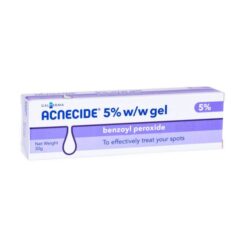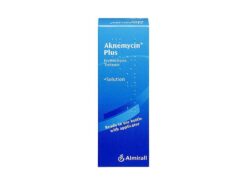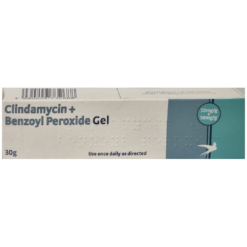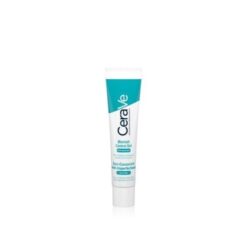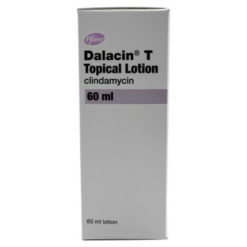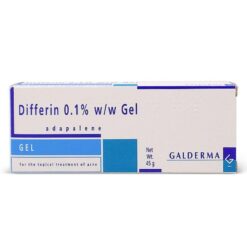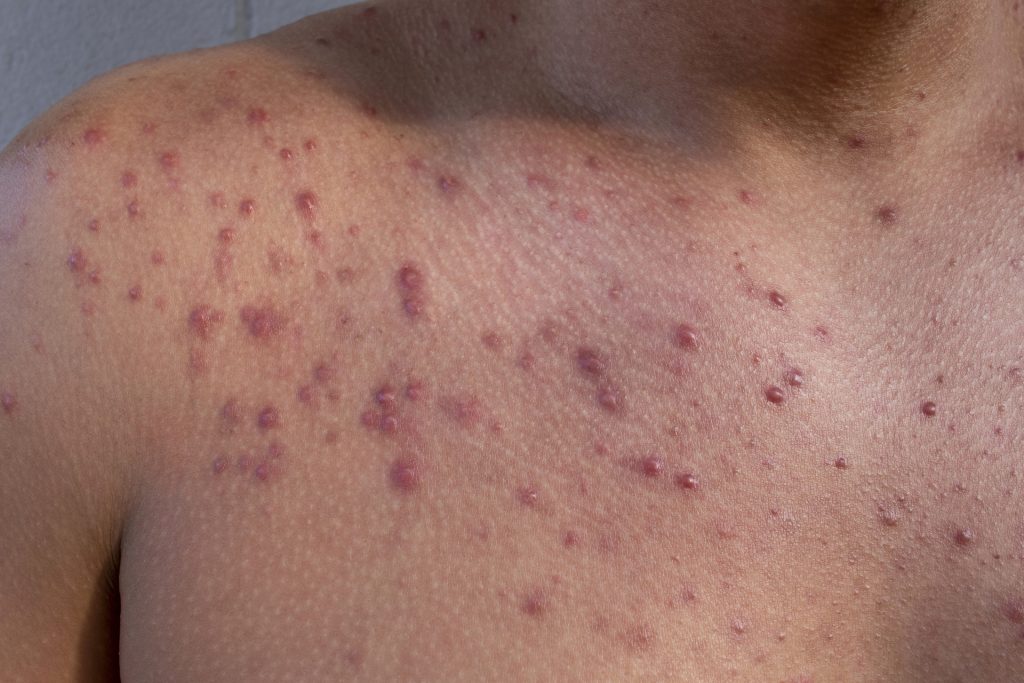
Shoulder acne is an embarrassing skin condition many people in the UK suffer from, especially during summer when it’s harder to keep it covered. We don’t want you to suffer in silence, especially when there are many treatment options available for shoulder acne. So, if you’re looking for effective solutions and tips on how to get rid of shoulder acne, the team at Click2Pharmacy are here to help.
Shoulder acne can be caused by a combination of factors, including hormonal changes, excess sebum production, bacteria, dirt, sweat, and dead skin cells.
Fluctuation of hormones can cause acne to appear anywhere on your body, not just on your shoulders. Hormonal changes often lead to an increase in sebum production within the skin. Sebum is an oily substance that plays a vital role in maintaining skin moisture. However, excess sebum can lead to the development of acne.
In addition to hormonal changes, factors like sweat, dirt, and dead skin cells can lead to acne on the shoulders, back and other areas of your body that attract them. Sweat and dirt can accumulate on the surface of your skin, mixing with excess oil and clogging hair follicles. Regularly wearing tight or non-breathable clothing can also exacerbate this issue by trapping sweat and bacteria against the skin.
Dead skin cells on the surface of the skin can also play a role in the development of shoulder acne. When these cells are not properly removed, they may combine with sebum and clog hair follicles. This can create an ideal environment for P. acnes bacteria to thrive, leading to inflammation and the formation of acne.
During times of hormonal changes, such as puberty, hormone levels can become unbalanced, causing overactive sebaceous glands to produce more sebum than needed. This excess oil can clog hair follicles, trap bacteria and dirt, and contribute to the formation of acne. This can also promote the bacteria Propionibacterium acnes (P. acnes) on your skin, which can cause inflammation and worsen acne.
Hormonal acne is a common skin condition, often caused by fluctuations in hormone levels. It can occur in both males and females and is typically found on the face, chest, and shoulders. There are many different hormones that can cause hormonal acne, and it’s important to understand the roles of each and how they affect acne to create an effective acne treatment plan.
Progesterone and estrogen are female sex hormones that play a significant role in the development and maintenance of acne. An imbalance in these hormones, particularly during puberty, menstruation, pregnancy, or menopause, can lead to acne breakouts. High levels of progesterone can cause an increase in sebum production, leading to clogged pores and the development of acne.
Although testosterone is primarily a male hormone, it is also present in females and can contribute to acne. Higher levels of testosterone can lead to an increase in sebum production and clogged pores, resulting in acne breakouts.
In some cases, testosterone may be the primary hormone involved in causing hormonal acne, such as conditions like polycystic ovary syndrome (PCOS), which causes hormonal imbalances in women, leading to persistent acne.
Other hormones, such as cortisol, insulin, and growth hormones, can also play a role in the development of acne. Cortisol, commonly known as the stress hormone, can increase sebum production when elevated during periods of stress. Insulin, responsible for regulating blood sugar levels, can amplify acne-related inflammation and contribute to breakouts when imbalanced. Growth hormones, particularly during adolescence, can drive sebum production, leading to oily skin and acne.
Topical treatments like antibiotics, azelaic acid, benzoyl peroxide, retinoids and salicylic acid can be effective in treating various types of acne, including shoulder and back acne. These creams and gels help to reduce inflammation, unclog pores, and minimise scarring, improving the overall appearance and health of the skin.
Azelaic acid is a versatile topical medication that has anti-inflammatory, antimicrobial, and comedolytic properties, making it an effective treatment for mild to moderate acne. It helps to reduce swelling, redness, and the formation of acne-causing bacteria on the skin. Azelaic acid is also used to treat rosacea, redness and acne scarring. Skinoren Cream is a popular product containing azelaic acid, which can be ordered from our online acne clinic.
Benzoyl peroxide is the most commonly used topical acne treatment that works to kill acne-causing bacteria and unclog pores effectively. It can be used alone or in combination with other treatments, such as adapalene in Epiduo gel. Benzoyl peroxide also helps to prevent the development of antibiotic resistance when used in combination with other topical antibiotics.
Topical retinoids, such as tretinoin and adapalene, are derivatives of vitamin A that are effective in treating acne by regulating the life cycle of skin cells to prevent clogged pores. They are known to reduce inflammation and promote the renewal of the skin’s outer layer. It’s important to note that retinoids can cause skin irritation and increase sensitivity to sunlight, so it is recommended to use them at night and wear sunscreen during the day.
Salicylic acid works by exfoliating the skin, unclogging pores, and reducing inflammation. It is particularly effective for treating blackheads and whiteheads, as it breaks down the excess oil and dead skin cells responsible for causing them. However, salicylic acid can cause slight irritation and dryness to the skin, so it is essential to use a moisturiser in conjunction with the treatment.
There are several topical antibiotic treatments for shoulder acne, with Erythromycin and Clindamycin being the most popular ones.
Clindamycin works by preventing bacteria from reproducing and controlling skin inflammation. Clindamycin is commonly combined with Benzoyl peroxide in products like Duac gel to provide two active ingredients that work to fight acne.
Erythromycin works by reducing inflammation, inhibiting bacterial growth and stopping acne from spreading. Zineryt solution contains erythromycin and zinc acetate, which also helps to reduce inflammation and redness.
Oral antibiotics can be an effective treatment option for shoulder acne, particularly when topical treatments may be challenging to apply. There are several different antibiotics available to treat acne, but not all of them are as effective as others. For that reason, we don’t want to overwhelm you with lots of choices for antibiotics and instead want to share our most popular choice for our patients.
Lymecycline is a tetracycline antibiotic that helps reduce inflammation and bacterial growth. This medication can be found in hard capsules taken orally and works to kill Propionibacterium bacteria that causes acne. Although effective, it can take a while to see results when using oral antibiotics for shoulder acne treatment. It’s best to use it alongside a topical acne treatment and to continue treatment for at least eight weeks.
While it’s always best to consult a pharmacist, GP or dermatologist for personalised advice, there are some lifestyle changes that can help treat shoulder acne. From your skincare routine to your diet, here are our top tips on lifestyle changes that can help manage or clear up acne.
Following a skincare routine ensures your pores are clear and that your skin is clean and moisturised. Many of us do this for our faces, and you’ve probably heard it recommended for facial acne, but not enough of us consider that the rest of our skin needs a similar treatment! Here’s a simple skincare routine to follow to help manage shoulder acne:
Have you considered that your haircare products may be contributing to your shoulder acne? The ingredients in your shampoo or conditioner could inadvertently contribute to your shoulder acne, so it’s important to review the ingredients in them and ensure you wash your shoulders after you finish washing your hair to remove any residue from these products.
It’s essential you make sure you are drinking enough water every day to flush out toxins and that your diet is made up of a healthy balance of lean protein, fruit and vegetables.
Many people who suffer from acne find that food can be a trigger. If you’re unsure if this applies to you, try reducing the amount of sugar or dairy you consume and keeping a diary of your acne to see if either of these helps improve your condition.
While exercising is beneficial for overall health, sweat and bacteria can aggravate acne-prone skin. It is important to keep the shoulder area clean and dry during physical activities. Always wear clean and breathable clothing, and bring a towel to pat the skin dry (gently) as needed.
After exercising, it is crucial to cleanse the skin immediately to remove sweat, dirt, and bacteria.
Below are some other lifestyle habits and changes you can apply to help treat acne or prevent shoulder acne from occurring in the first place.
A multifaceted approach can be most beneficial in addressing shoulder acne. Implementing topical treatments, oral medications, and lifestyle changes are usually the best treatment options to combine. Here’s the best way to do that:
As always, individual results may vary, and it is essential to consult a medical professional for the most appropriate treatment plan. Fortunately, at Click2Pharmacy, our fully qualified UK-based pharmacists provide free online consultations to find the most effective treatments for patients of our online acne clinic. Once we’ve found the best treatment plan for you, we can prescribe and deliver your treatments straight to your door. Book a consultation today!
